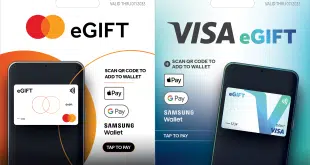The Allpoint and Co-op surcharge-free ATM networks are bigger, but Minneapolis-based U.S. Bancorp's MoneyPass network has been on a quiet growth spurt in 2008. MoneyPass over the spring and summer has announced a number of new members and in October is set to boost its ATM count by another 3,000 under through an agreement with processor Fidelity National Information Services Inc.'s InterCept switch. In July, the network had about 13,200 ATMs, up from 10,300 a year earlier, MoneyPass president Doug Miraglia, tells Digital Transactions News. MoneyPass had 7,000 ATMs in mid-2006, according to a U.S. Bancorp release. About 1,000 financial institutions representing 30 million debit cards now belong to the network, compared with 750 banks and credit unions in mid-2007. Founded in 2003, MoneyPass came under U.S. Bancorp's wing in 2005 when the banking firm bought its owner, Fort Washington, Pa.-based Genpass Technologies LLC, where Miraglia was senior vice president. Despite slow or declining per-machine transaction growth in recent years due in part to market saturation and the growth of merchant locations that give cash back at the point of sale with debit card transactions, banks and credit unions have clamored to expand their ATM footprints to attract and retain customers. Besides deploying their own machines, some have signed branding agreements with non-bank ATM network leader Cardtronics Inc., which now has 10,000 machines that sport the brands of its various bank partners (Digital Transactions News, Aug. 12). Surcharge-free networks, in which members agree not to surcharge each other's customers, are another strategy for a financial institution to provide ATM utility without buying more machines. Miraglia claims MoneyPass, while smaller, has two advantages over its larger surcharge-free rivals, Cardtronics' Allpoint network with 32,000 ATMs, and Co-op Financial Services, with 25,000. MoneyPass has both bank and credit-union members, which he describes as a more stable base than that of the retailer-dominated Allpoint, and broader than Co-op's, which is just for credit unions. And because of its open relationships with other processors, including Fiserv Inc., Metavante Corp., Visa DPS, First Data Corp., and Fifth Third Processing Solutions, MoneyPass usually can easily connect to a new client's existing processor. “We don't care who your processor is, we have a way for you to get into MoneyPass,” he says. MoneyPass also gets sales referrals from U.S. Bancorp's in-house Elan Financial Services card-processing unit and from its Elavon (formerly Nova Information Systems) merchant-acquiring subsidiary. Some of MoneyPass's recent signings include CircleBank in Novato, Calif.; LibertyBank, South Valley Bank & Trust, Oregon Pacific Bank, and Bank of Eastern Oregon, all in Oregon; Horizon Bank in Washington; Barnes Bank, Bank of American Fork and First Utah Bank, all in Utah; and Amcore Bank in Rockford, Ill. While many members have only a few ATMs, they still add to the network's mass. Small banks and credit unions often contact MoneyPass after a big bank in their state or region signs on, according to Miraglia. After Baltimore's Provident Bank, the second-largest Maryland-based bank by deposits, joined MoneyPass two years ago, about 30 other Maryland financial institutions joined. A similar trend occurred in Utah after that state's largest banking firm, Salt Lake City-based Zions Bancorp, joined, he says. “What we look for are anchor financial institutions for the market,” Miraglia says. “When an anchor financial institution joins … smaller financial institutions get interested.” Many of MoneyPass's newer members are concentrated in the northwest, where the network has nearly 500 ATMs in Oregon, 350 in Washington, and nearly 200 in Idaho. The pending InterCept fleet is concentrated in southern states. “Our areas of lightest concentration are in the upper New England market,” says Miraglia. “It's an area in 2009 I'm going to be giving much more attention to.” Miraglia wouldn't give financial details, but says, “Our revenue stream is additive or accretive to [U.S. Bancorp's] processing business.”
Check Also
PayPal Unleashes Ferrell Again and other Digital Transactions News briefs from 4/10/25
PayPal Holdings Inc. said will release a second wave of advertisements with actor Will Ferrell to promote its …




